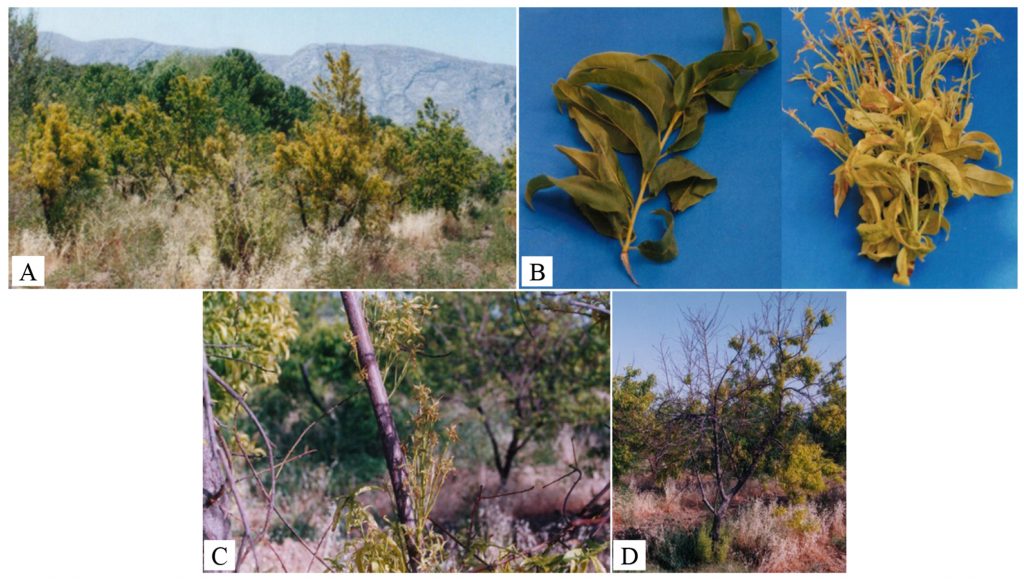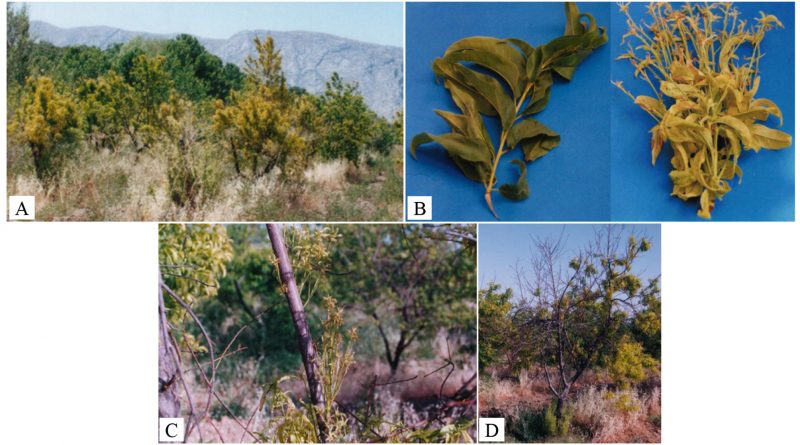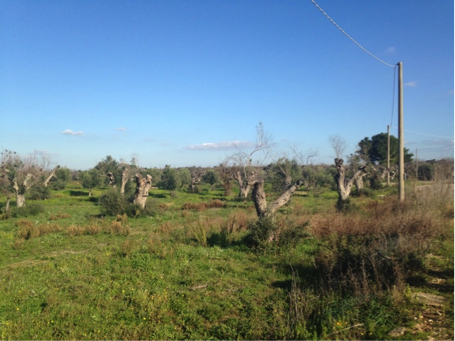PHYTOPLASMA ASSOCIATED WITH ALMOND WITCHES’-BROOM IS ADAPTING TO SEVERAL CROPS
‘Candidatus Phytoplasma phoenicium’, the phytoplasma associated with almond witches’-broom in the Middle East, is a quarantine pathogen firstly reported in Europe, in Apulia region (South Italy), in 2019. In the present study, conducted in collaboration with scientists of AREEO (Iran), ‘Ca. P. phoenicium’ has been found in association with peach witches’-broom (Figure), a disease largely spread in Iran leading to a heavy impact on peach production. This finding reinforced previous evidence that ‘Ca. P. phoenicium’ is able to adapt rapidly to a broad range of host plants, in particular stone fruit of the genus Prunus (almond, peach, and apricot). Moreover, due to the complexity of its biological cycle including insect vectors and non-crop host plants, diseases associated with ‘Ca. P. phoenicium’ represent a serious threat for the Euro-Mediterranean region.

REFERENCE
Salehi, M., Esmailzadeh Hosseini, S.A., Salehi, E., Quaglino, F., Bianco, P.A. (2020). Peach witches’-broom, an emerging disease associated with ‘Candidatus Phytoplasma phoenicium’ and ‘Candidatus Phytoplasma aurantifolia’ in Iran. Crop Protection 127, 104946.
DOI: 10.1016/j.cropro.2019.104946


